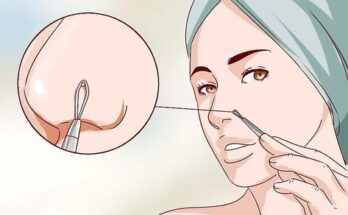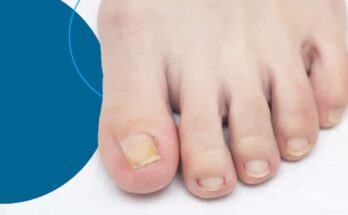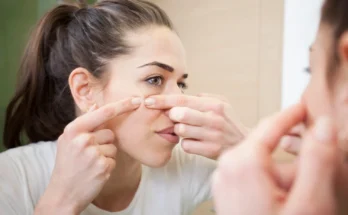In today’s fast-paced world, where stress and environmental factors often take a toll on our skin, it can be difficult to maintain a positive outlook. Acne, in particular, can significantly impact our self-esteem, making it all the more challenging to embrace the concept of having a “lovely day.” However, achieving both physical and emotional well-being isn’t impossible. With the right approach, a combination of skin care, lifestyle changes, and self-care routines can help you both enjoy a day filled with positivity and see significant improvements in your skin health.
This article takes a holistic approach to skincare, providing not only tips for managing acne but also offering strategies for cultivating a peaceful and joyful mindset. Whether you suffer from mild or more severe acne, adopting a routine that addresses both your mental and physical well-being can set you on the path to feeling your best.
1. Understanding Acne: The First Step to Loving Your Skin
Acne is a common skin condition that occurs when hair follicles become clogged with oil, dead skin cells, and sometimes bacteria. This leads to the formation of pimples, blackheads, cysts, and other blemishes. Acne can appear on the face, back, chest, and shoulders, often causing discomfort, scarring, and frustration. It’s important to understand the underlying causes of acne in order to treat it effectively.
Common Causes of Acne:
- Hormonal fluctuations: Puberty, menstruation, pregnancy, and stress can cause hormonal shifts that lead to increased oil production in the skin.
- Genetics: Your genetic makeup can influence how your skin reacts to various internal and external factors.
- Diet: Foods that are high in refined sugars, dairy, and processed ingredients may contribute to acne flare-ups in some individuals.
- Environmental factors: Pollution, humidity, and exposure to toxins can clog pores and trigger inflammation.
- Stress: Increased levels of stress can trigger acne by causing hormonal changes and inflammation in the skin.
Understanding acne’s root causes can help demystify the condition and shift your mindset toward healing rather than frustration. By addressing both internal and external factors, you can create a strategy for clearer skin and a happier, healthier you.
2. Building Your Ideal Skincare Routine
Achieving clear skin requires consistent effort and a tailored skincare regimen. However, it’s crucial to remember that your routine should suit your skin type and condition, as well as your lifestyle. Below is a step-by-step guide to building an effective skincare routine that helps combat acne and promotes a lovely day:
Step 1: Gentle Cleansing
The first step in any skincare routine is cleansing your face to remove dirt, oil, and makeup. However, it’s essential to use a gentle cleanser suited for acne-prone skin. Harsh cleansers can strip your skin of natural oils, causing it to overcompensate by producing more sebum, which can worsen acne.
- Recommended Cleansers:
- Salicylic acid-based cleansers: These can penetrate pores and exfoliate the skin.
- Tea tree oil: Known for its antibacterial properties, it can help reduce acne-causing bacteria.
- Foaming cleansers: A light foaming formula can effectively cleanse without being too harsh.
Cleanse your face twice a day—once in the morning and once before bedtime—to maintain a clean slate for your skin.
Step 2: Exfoliation (2-3 Times a Week)
Exfoliating helps to slough off dead skin cells and prevent clogged pores. However, over-exfoliating can irritate the skin and exacerbate acne, so it’s important to exfoliate no more than 2-3 times a week.
- Recommended Exfoliants:
- AHA (alpha-hydroxy acids): These acids gently exfoliate the skin, revealing fresher, brighter skin.
- BHA (beta-hydroxy acids, such as salicylic acid): BHA is oil-soluble, making it ideal for treating acne and blackheads.
Step 3: Applying Treatment Products
After cleansing and exfoliating, apply acne treatment products that target the root causes of acne. Depending on your skin’s needs, consider treatments that help reduce inflammation, regulate oil production, and prevent bacteria from accumulating in pores.
- Topical Treatments:
- Benzoyl peroxide: This product kills acne-causing bacteria and helps reduce redness.
- Retinoids: These can be particularly effective for preventing clogged pores and treating acne scars. They promote cell turnover, leading to smoother skin.
- Niacinamide: This anti-inflammatory ingredient helps reduce redness and irritation while balancing oil production.
Step 4: Moisturizing
Even oily or acne-prone skin needs moisture. If you skip this step, your skin may overcompensate by producing excess oil, which could trigger breakouts. Opt for a non-comedogenic (won’t clog pores) moisturizer that helps lock in hydration without leaving your skin feeling greasy.
- Recommended Moisturizers:
- Gel-based moisturizers: These provide lightweight hydration, making them ideal for acne-prone skin.
- Oil-free moisturizers: These help keep the skin balanced without adding extra oils.
Step 5: Sunscreen (Every Day)
Daily sunscreen is a non-negotiable step in your skincare routine, even on cloudy days. Sunscreen prevents further skin damage, including pigmentation from acne scars, and protects against harmful UV rays that can contribute to premature aging.
- Recommended Sunscreens:
- Broad-spectrum SPF 30 or higher: Look for mineral sunscreens containing zinc oxide or titanium dioxide if you have sensitive skin.
3. Nutrition: What You Eat Can Affect Your Skin
A lovely day starts from within, and this is especially true when it comes to achieving clear skin. Nutrition plays a significant role in how your skin looks and feels. Diets high in processed foods, sugar, and dairy have been linked to an increased risk of acne.
Foods to Include:
- Omega-3 fatty acids: These healthy fats found in fish, flaxseeds, and walnuts help reduce inflammation, potentially improving acne symptoms.
- Antioxidant-rich foods: Foods like berries, leafy greens, and nuts help protect your skin from oxidative stress and free radical damage, which can worsen acne.
- Probiotics: Fermented foods like yogurt, kimchi, and sauerkraut support gut health, which is closely linked to skin health.
- Zinc-rich foods: Zinc is known to help regulate oil production and reduce inflammation. Include foods like pumpkin seeds, cashews, and chickpeas in your diet.
Foods to Avoid:
- Refined sugars and carbs: These can cause spikes in insulin levels, leading to increased oil production and potential acne flare-ups.
- Dairy products: Some studies suggest that dairy can worsen acne, particularly in individuals who are sensitive to it.
- Processed foods: Fast food, fried foods, and packaged snacks can introduce toxins into the body, which may contribute to skin inflammation.
Staying hydrated is equally important. Drinking plenty of water helps keep your skin plump and prevents dehydration, which can lead to dryness and breakouts.
4. Managing Stress for Better Skin and a Better Day
Stress is one of the most significant contributors to acne, yet it’s often the hardest to avoid. When you’re stressed, your body releases cortisol, a hormone that increases oil production in the skin, contributing to acne breakouts. Reducing stress through mindfulness and self-care is crucial for both your mental well-being and your skin.
Stress-Relief Strategies:
- Meditation: Incorporating daily meditation or deep breathing exercises can help reduce stress and promote a calm mindset.
- Exercise: Physical activity boosts endorphins (the body’s natural mood elevators) and helps reduce cortisol levels.
- Adequate Sleep: Quality sleep is essential for both your skin’s repair process and your overall health. Aim for 7-9 hours per night.
- Journaling: Writing down your thoughts and emotions can help process stress and promote mental clarity.
Creating a “Lovely Day” Mindset
A lovely day isn’t just about clear skin—it’s about nurturing your body and mind to foster happiness. Here are some ways to boost your mood and mental health:
- Practice gratitude: Start your day by listing three things you’re grateful for. This small habit can shift your perspective and help you approach the day with positivity.
- Set boundaries: Make time for yourself by setting boundaries at work and in personal relationships. This helps avoid burnout and maintain a sense of peace.
- Engage in activities that bring joy: Whether it’s reading, painting, or spending time with loved ones, doing what you love will help boost your mood and reduce stress.



